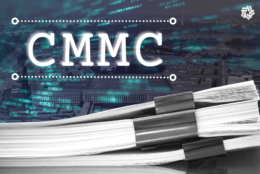Commentary
-
Many regulations require that companies working with national security information implement aggressive levels of cybersecurity.
July 10, 2024 -
As government networks load up on new data and applications, gaining visibility over modern IT estates has become more difficult than ever.
July 09, 2024 -
With the Fourth of July behind them, and the Republic convention ahead of some of them, Congress spends this week in session.
July 08, 2024 -
Over the past three years, agencies have rebuilt their departments and energy programs, leveraging years of data and experience.
July 08, 2024 -
Performance measures are integral to estimating actual savings from IT investment.
July 05, 2024 -
Regular breaks, or “productivity pauses,” are crucial for the well-being and effectiveness of public servants.
July 03, 2024 -
By prioritizing skills and competencies over traditional educational credentials, federal contractors can tap into a wider pool of talent.
July 02, 2024 -
Nikki Frias, corporate improv instructor in the DC-area, explains why embracing failure can make you more successful in meeting your business goals.
July 01, 2024 -
The Council should also consider exempting cloud service providers (CSPs) that have an existing FedRAMP authorization from the rule’s reporting requirements.
June 28, 2024 -
As generative AI technology has become more sophisticated and accessible, creating and deploying fake identities is now easier than ever.
June 27, 2024 -
To build a secure future, it is critical that the U.S. government invest in a resilient, defensible digital ecosystem.
June 26, 2024 -
The true cost of AI encompasses a range of factors beyond just the initial investment in hardware and software.
June 25, 2024 -
GSA has been using a series of data management tools to support the price evaluation of products under the Multiple Award Schedule (MAS) program.
June 24, 2024 -
Comprehensive data management is key to unlocking seamless, personalized and secure CX for government agencies.
June 20, 2024 -
DoD can duplicate USINDOPACOM’s transformation to rapidly implement multi-enclave environments on a broader scale in support of CJADC2.
June 18, 2024















